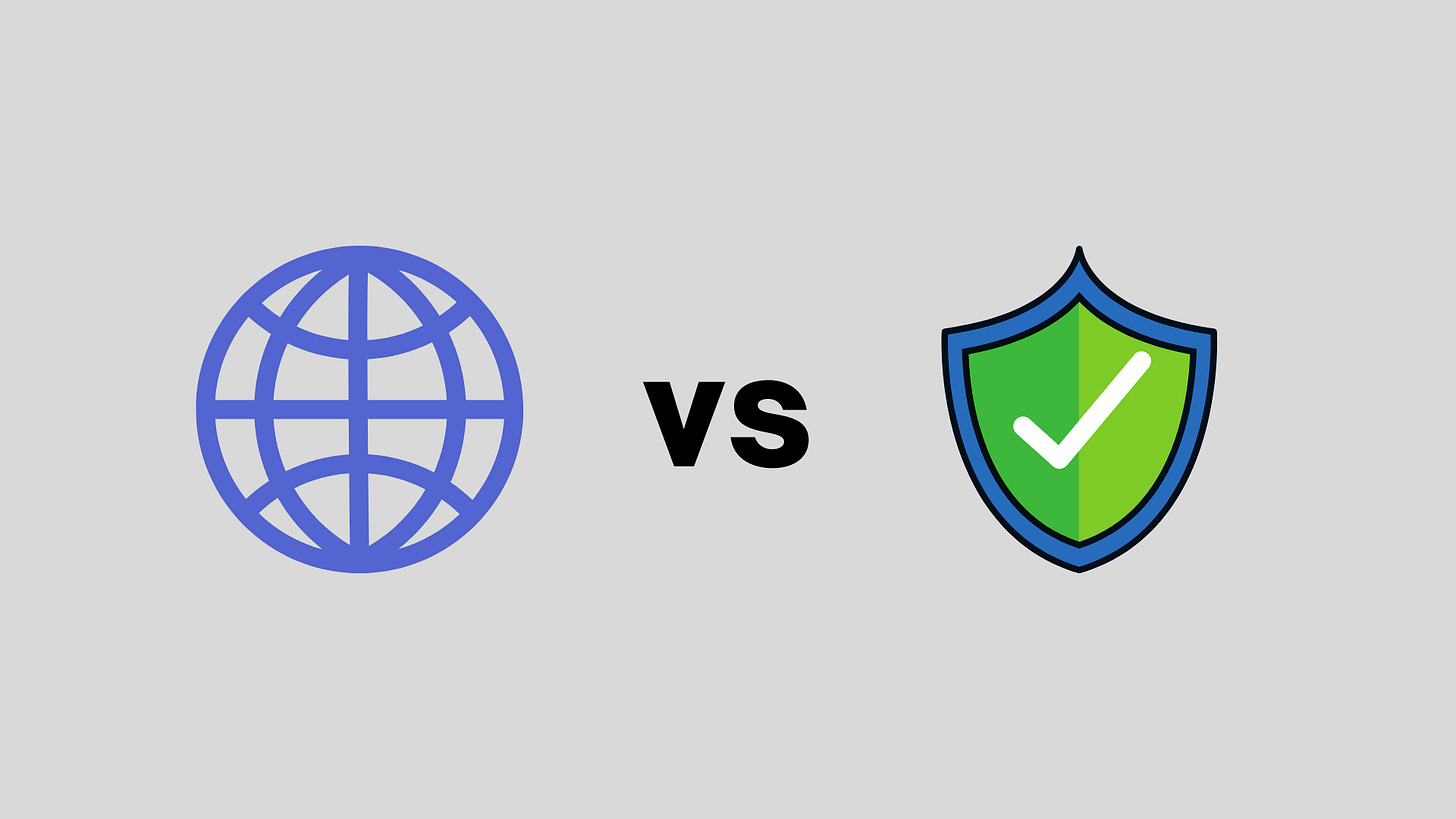In the modern world, tons of people confuse privacy with security, using the terms interchangeably without fully understanding their distinct meanings.
While privacy and security are interconnected concepts, they are not interchangeable, and it is crucial to understand the differences between them to ensure that our rights and safety are protected in the digital age.
It's time to settle the debate of privacy vs security once and for all. And what better way to do that than with a healthy dose of humor? So grab a tin foil hat and let's dive in!
1) What is privacy?
Privacy is like your momma saying "stay outta my business" when she's on the phone with her gal pals.
Definition:
Privacy is the right of individuals to control access to their personal information.
What does privacy protect?
Personal information that requires privacy protection includes any information tied to your personal identity: financial information such as bank account and credit card numbers, medical information such as diagnoses and treatment plans, personal communication data such as email and instant messaging conversations…
What are the threats that a lack of privacy imposes?
Common privacy threats include data breaches where hackers gain access to a database of personal information, identity theft where personal information is used to impersonate someone else, and surveillance where individuals or organizations monitor or track someone's personal activities.
What are some examples of privacy violations?
Examples of privacy violations include the Cambridge Analytica scandal where Facebook users' personal information was harvested without their knowledge or consent, and used to influence elections by various forms of manipulation, and the NSA's mass surveillance program which collected data on phone calls and internet communications without a warrant.
In conclusion, privacy is all about keeping your secrets secret, like how many Oreos you really ate last night, or the fact that you have a secret crush on your best friend.

2) What is security?
Security is like your grumpy neighbor putting up a "no trespassing" sign on his yard, just in case some pesky kids decide to wreak havoc.
Definition:
Security is the protection of assets, resources, and data from unauthorized access, use, disclosure, disruption, modification, or destruction.
What does security protect?
Systems and devices that benefit from security protection from unauthorized access which would include internal company computers, smart systems, personal laptops and home desktops, super computers, and any kind of device, array of devices or system that can hold sensitive or non-sensitive data.
What are the threats that a lack of security imposes?
Common security threats include malware, which is software designed to harm a computer system, phishing, which is the attempt to trick people into giving away personal information, and hacking, which is the unauthorized access to a computer system.
What are some examples of security violations?
Examples of security breaches include the Equifax data breach where sensitive personal information of millions of people was stolen, and the Target data breach where credit and debit card information was stolen from millions of customers.
In conclusion, security is about keeping your stuff safe from the bad guys - you know, the ones who want to steal your bank account info, or hack into your social media accounts and post embarrassing pictures of your ski trip last winter.

3) Privacy vs Security:
The relationship between privacy and security and how they overlap:
Security measures can be like a big brother who protects his little sister's secrets by keeping them locked up tight with encryption and access controls. But sometimes, security measures can go too far and become the annoying brother who always wants to know what his sister is up to by using surveillance and monitoring. Privacy laws and regulations are like the strict parents who make sure their kids behave and include provisions for security measures to protect personal data from naughty hackers trying to breach their defenses. In the end, privacy and security are like two peas in a pod, always overlapping and working together to keep us safe and secure, even if they occasionally annoy each other.
The trade-offs between privacy and security:
Privacy and security are like two kids fighting over a toy, but in this case, the toy is your personal information. One big example of this is Antivirus software, which acts as a superhero trying to protect your computer from viruses and malware, but consequently needs to regularly scan all of your files and data to do so, and send it back to the third-party antivirus company for “extensive analysis” or “product improvement”, which poses big privacy risks as this company now has access to all of your data. It's like having an old neighbor who keeps checking up on you every twenty minutes. They mean well, but they can still cause some privacy concerns. If the antivirus software doesn't scan all your files, it's a guard dog who can't smell intruders coming. It may be cute, but it won't be able to protect you. So by using an antivirus, your computer is very secure but badly configured if you have privacy in mind.
On the the other hand, a computer can be private but not secure. It doesn’t matter if your social media account is set to private if an attacker has access to your device. Similarly, using Tor is like wearing a disguise, but if a hacker can see everything you're doing on your screen in real-time, it's like having a camera following you everywhere you go. To keep your computer safe, you need to be both sneaky and tough, like a ninja in armor. It's not enough to just hide your information; you need to protect it from all angles.
And there you have it! We hope you enjoyed this article explaining the difference between privacy and security. It's not always easy to balance the two, but with a little bit of know-how, you can keep your information safe and sound.
See you next time! ShieldUp!




